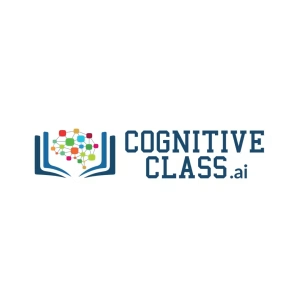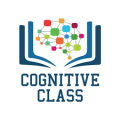- All
- Favorite
- Popular
- Most rated

Insurance Risk assessment w/Monte Carlo method using Spark
Master insurance risk assessment using the Monte Carlo method with Spark. Learn how to simulate risk scenarios and use big data processing to make more accurate predictions and improve decision-making in the insurance sector.

Medical Appointment Data Analysis
Analyze medical appointment data to uncover trends and insights. Learn how to handle and visualize healthcare data to improve patient scheduling, optimize operations, and predict trends that can streamline healthcare services.

Introduction to Cognos Analytics
Explore the features of IBM Cognos Analytics, a powerful business intelligence tool. Learn how to create reports, dashboards, and visualizations to transform raw data into actionable insights that drive business decisions.

Getting Started with Tableau Online
Begin your journey with Tableau Online. Learn how to connect to data sources, create interactive dashboards, and share visual insights with colleagues and stakeholders to inform decision-making processes with data-driven visuals.

Data Scientist Career Guide and Interview Preparation
Kickstart your career as a data scientist with this comprehensive guide. Prepare for interviews with expert tips on resume building, essential skills, and mock interviews to help you land a role in the booming field of data science.

Data Analysis with Python
Dive into data analysis with Python. Learn how to work with libraries like Pandas, NumPy, and Matplotlib to manipulate and visualize data, and uncover insights that can drive data-driven decision-making in any field.

Diwali Sales Insights: EDA for Targeted Marketing
Perform exploratory data analysis (EDA) on Diwali sales data to derive marketing insights. Learn techniques to analyze consumer behavior and segment customers to create effective, targeted marketing strategies during the festive season.

Beyond the Basics: Istio and IBM Cloud Kubernetes Service
Take your Kubernetes skills to the next level with Istio and IBM Cloud Kubernetes Service. Learn how to manage microservices communication, traffic routing, and security using Istio in IBM’s cloud-native ecosystem.

Managing Cloud Native Applications on Kubernetes
Master the management of cloud-native applications on Kubernetes. Explore container orchestration, microservices architecture, and cloud-native tools that streamline app deployment, scaling, and operations in the cloud.

Red Hat OpenShift – Start with the Basics
Get started with Red Hat OpenShift, the enterprise Kubernetes platform. Learn the basics of container orchestration, application deployment, and scaling with OpenShift, an essential tool for cloud-native application management.

Scaling and Updating Applications with Kubernetes
Learn how to scale and update applications with Kubernetes. Discover how to manage application growth, implement rolling updates, and ensure seamless scalability in a Kubernetes environment to support modern web apps.

Hands-on with Red Hat OpenShift: Deploy, Scale & Manage Apps
Gain practical experience with Red Hat OpenShift. Learn how to deploy, scale, and manage applications on OpenShift, leveraging its capabilities for high availability, scalability, and continuous delivery in cloud environments.

Kubernetes/OpenShift Policy-as-Code with Kyverno
Learn how to implement Policy-as-Code with Kyverno for Kubernetes and OpenShift environments. Discover how to enforce security and compliance policies using Kyverno's policy engine to automate governance in cloud-native applications.

Deploying Microservices with OpenShift
Learn how to deploy, manage, and scale microservices with OpenShift. Discover how OpenShift simplifies microservices architectures with Kubernetes orchestration and continuous integration capabilities.

Getting Started with DevOps on the Cloud
Dive into DevOps practices in the cloud. Learn how to integrate CI/CD pipelines, automate testing, and deploy applications seamlessly using cloud tools and DevOps practices for faster software delivery and scalability.

Getting Started with OpenShift
Understand the basics of OpenShift, an enterprise Kubernetes platform. Learn how to manage, scale, and deploy applications on OpenShift, and explore how it can improve your development lifecycle and operations in cloud-native environments.

Deploy a Web Server Using Python and IBM Code Engine
Discover how to deploy a Python-based web server on IBM Code Engine. Learn how to create and deploy scalable web applications with ease using serverless computing for a smooth, cost-effective deployment process.

Kubernetes Operators Intermediate
Build on your Kubernetes skills with an intermediate course on Kubernetes Operators. Learn to automate deployment and management of complex applications using custom controllers for better operational efficiency.

Deploy a Computer Vision App in a Serverless Environment
Learn to deploy a computer vision application in a serverless environment. Explore serverless architecture, cloud platforms, and how to deploy scalable computer vision models without worrying about infrastructure management.

Create and Deploy Your First Kubernetes Pod
Start your Kubernetes journey by learning how to create and deploy your first Kubernetes Pod. Understand the basics of containers, pods, and deployments to efficiently manage cloud-based applications.

Kubernetes Operators Advanced
Take your Kubernetes skills to the next level with advanced concepts in Kubernetes Operators. Learn how to automate the management of complex applications and extend Kubernetes capabilities for better scalability.

Scalable Web Applications on Kubernetes
Learn how to design and deploy scalable web applications on Kubernetes. Discover how to use Kubernetes’ features to ensure high availability, load balancing, and easy management of your applications in the cloud.

Getting started with Microservices with Istio and IBM Cloud Kubernetes Service
Learn how to build and deploy microservices using Istio and IBM Cloud Kubernetes Service. Gain hands-on experience with service meshes, API management, and scalable microservices architectures in the cloud.

Working with Containers, Docker, and the IBM Cloud Container Registry
Understand how to work with containers using Docker and IBM Cloud Container Registry. Learn containerization concepts and how to manage and deploy applications effectively in the cloud.
Comprehensive Guide to Cognitive Class
Overview of Cognitive Class: Cognitive Class, originally known as Big Data University, is an online platform renowned for delivering high-quality education in data science, AI, and other technology fields. This guide explores the key features, benefits, and impact of Cognitive Class, emphasizing how it empowers learners to gain valuable skills and advance their careers.Introduction to Cognitive Class
- What is a Cognitive Class? Cognitive Class is an educational platform offering a wide array of courses in data science, artificial intelligence (AI), and technology-related topics. Developed by IBM, it provides free access to resources aimed at helping individuals gain expertise in areas such as data analytics, machine learning, and cloud computing.
- Mission and Vision: Cognitive Class is dedicated to democratizing education by making advanced technological training accessible to everyone. The platform’s mission is to equip learners with the necessary skills and knowledge to thrive in the tech industry, thereby fostering a community of professionals capable of driving innovation and solving complex problems using data and AI.
Key Features of Cognitive Class
- Extensive Course Catalog: Cognitive Class offers a broad range of courses covering topics like data science, machine learning, AI, and cloud computing. These courses are designed to impart in-depth knowledge and practical skills, catering to learners at all levels, from beginners to advanced users.
- IBM-Developed Content: All courses on Cognitive Class are developed by IBM, leveraging the company's extensive industry expertise. This ensures that the content is not only relevant but also aligned with current industry standards, providing learners with high-quality instruction and practical insights.
- Free Access and Certification: Cognitive Class stands out by offering free access to its courses, making it an excellent option for individuals looking to enhance their skills without financial constraints. Additionally, learners can earn certifications upon completing courses, which can help validate their skills and improve career prospects.
Benefits of Using Cognitive Class
- High-Quality, Expert-Led Training: Courses on Cognitive Class are led by industry experts from IBM, ensuring that learners receive high-quality instruction grounded in extensive real-world experience. This expert-led approach equips learners with both theoretical knowledge and practical skills necessary for tackling real-world challenges.
- Accessible Education for All: By offering free access to its courses, Cognitive Class makes advanced technological education accessible to a global audience. This inclusivity helps bridge the gap in tech education and supports the development of a diverse and skilled talent pool.
- Career Enhancement and Development: Cognitive Class’s certification programs offer a significant boost to learners' resumes. By earning certifications, learners can validate their expertise, making them more attractive to employers and opening doors to new career opportunities in data science, machine learning, and AI.
Cognitive Class for Individuals and Organizations
- Skill Development and Mastery for Individuals: For individual learners, Cognitive Class provides an opportunity to develop and refine skills in data science, AI, and related technologies. The platform's courses are designed to offer practical knowledge and hands-on experience, enabling learners to apply their skills in real-world scenarios.
- Career Advancement: Cognitive Class certifications can enhance career prospects by providing recognized credentials that validate a learner’s expertise. These certifications can significantly improve job marketability and open up new career opportunities.
- Employee Training and Upskilling for Organizations: Organizations can utilize Cognitive Class to train and upskill their employees in areas such as data science, AI, and technology. The platform’s courses equip employees with valuable skills that can enhance performance and contribute to the organization’s success.
- Optimizing Data-Driven Strategies: By integrating Cognitive Class’s training into their development programs, organizations can enhance their data-driven strategies and technological capabilities, driving growth and improving overall effectiveness.
Success Stories and User Feedback
- Impact on Learners and Professionals: Cognitive Class has significantly impacted many learners and professionals by providing the skills and knowledge needed to succeed in the tech industry. Success stories highlight how individuals have leveraged the platform to advance their careers and achieve outstanding results.
- User Testimonials and Feedback: Feedback from users of Cognitive Class underscores the platform’s value and effectiveness. Testimonials frequently commend the quality of the courses, the expertise of the instructors, and the practical insights gained, reinforcing the platform’s role in delivering high-quality education.
Getting Started with Cognitive Class
- Creating an Account and Exploring Courses: Getting started with Cognitive Class is simple. Users can create a free account and explore the extensive course catalog, selecting courses that align with their learning goals. The platform’s user-friendly interface makes it easy to navigate and access educational resources.
- Choosing the Right Courses: To get the most out of Cognitive Class, learners should choose courses that match their skill level and career objectives. With topics ranging from introductory to advanced levels, users can tailor their learning experience to meet their specific needs.
- Utilizing Support and Resources: Cognitive Class offers additional support and resources to help learners succeed, including course materials, community forums, and expert guidance. Leveraging these resources can enhance the learning experience and maximize the benefits of the training.

